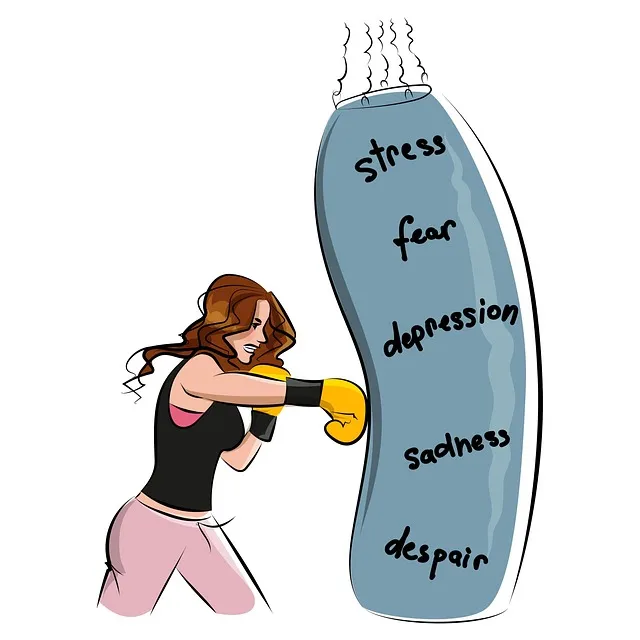Mindfulness meditation, promoted by Westminster Kaiser Permanente behavioral health providers, is a powerful tool for enhancing mental well-being. By focusing on the present moment without judgment, individuals can improve emotional regulation, reduce stress, and build empathy. Regular practice leads to better decision-making, increased resilience, and improved mental health. Guided by these providers, mindfulness can be incorporated into daily life with simple exercises like breathing and short meditations, evolving into comprehensive routines that enhance stress management, focus, and self-awareness. Advanced techniques cater to seasoned meditators, offering tailored practices for optimal mental health and well-being in both personal and social contexts.
Unwind your mind and embrace a moment of calm with mindfulness meditation, a practice gaining traction worldwide. This ancient art promotes mental clarity and emotional well-being, making it a game-changer for stress management. In this guide, we explore the benefits of mindfulness through the expertise of Westminster Kaiser Permanente behavioral health providers. From beginners to seasoned practitioners, discover simple techniques, advanced practices, and daily integration tips to unlock your meditation potential and enhance your overall mental health.
- Understanding Mindfulness Meditation: A Basic Overview
- Benefits of Mindfulness for Mental Well-being
- Getting Started: Techniques and Tips from Westminster Kaiser Permanente Behavioral Health Providers
- Incorporating Mindfulness into Daily Life
- Advanced Practices for Experienced Meditators
Understanding Mindfulness Meditation: A Basic Overview

Mindfulness meditation is a practice that has gained significant traction in recent years, thanks to its effectiveness in promoting mental well-being. At its core, it involves focusing on the present moment with awareness and non-judgmental attention. This simple yet profound act encourages individuals to observe their thoughts, emotions, and bodily sensations as they are, without attempting to change or suppress them. By cultivating this mindset, practitioners can develop a deeper understanding of themselves and their reactions to various situations, leading to improved emotional regulation and overall mental clarity.
Westminster Kaiser Permanente behavioral health providers emphasize that mindfulness is not about achieving a certain state of calm but rather embracing the natural flow of thoughts and sensations. This practice has been shown to have numerous benefits, including stress reduction methods and empathy building strategies, as it fosters a deeper connection with one’s inner self and others. Moreover, regular meditation can contribute to Mental Illness Stigma Reduction Efforts by promoting understanding and self-compassion, ultimately leading to enhanced mental health outcomes.
Benefits of Mindfulness for Mental Well-being

Mindfulness meditation has gained immense popularity due to its profound impact on mental well-being. Practices such as those offered by Westminster Kaiser Permanente behavioral health providers, focus on cultivating present-moment awareness and non-judgmental observation of thoughts and feelings. Regular mindfulness practice has been linked to significant improvements in stress reduction, anxiety management, and depression prevention. By promoting mental clarity and emotional regulation, individuals can develop a stronger sense of self-awareness, leading to enhanced decision-making and problem-solving abilities.
The Mind Over Matter Principles emphasized in these sessions help individuals cultivate resilience against life’s challenges. Mental Health Awareness is not just about recognizing symptoms; it involves fostering a deeper understanding of one’s thoughts and emotions. This heightened awareness can lead to a confidence boost, enabling people to navigate their daily lives with greater equanimity and purpose. Through mindfulness meditation, individuals can discover the tools needed to create positive changes in their mental health and overall quality of life.
Getting Started: Techniques and Tips from Westminster Kaiser Permanente Behavioral Health Providers

Starting your mindfulness meditation journey can seem daunting, but with guidance from Westminster Kaiser Permanente behavioral health providers, it becomes an accessible and transformative practice. They emphasize that the key is to begin with a simple yet effective routine. One popular technique is focusing on the breath—a fundamental aspect of mindfulness. Simply sit comfortably, close your eyes, and gently direct your attention to your inhalation and exhalation. This grounding practice helps to calm the mind and body, promoting emotional well-being promotion techniques that can be powerful tools in preventing depression.
Westminster Kaiser Permanente experts suggest setting aside just a few minutes each day for meditation. Consistency is more valuable than lengthy sessions at first. They also recommend finding a quiet space where you won’t be disturbed. With regular practice, you’ll become more attuned to your thoughts and feelings without judgment. This heightened awareness can lead to significant improvements in your overall mental health and resilience, making mindfulness meditation an effective strategy for maintaining emotional balance and potentially preventing future depressive episodes.
Incorporating Mindfulness into Daily Life

Incorporating mindfulness into daily life is a transformative journey that can be facilitated by the support of Westminster Kaiser Permanente behavioral health providers. Starting small, individuals can begin to cultivate present-moment awareness through simple practices like mindful breathing exercises or short meditation sessions. Over time, these moments of presence can expand into more comprehensive mindfulness routines, seamlessly integrated into activities like walking, eating, or even engaging in daily tasks at work or home.
By adopting mindfulness, folks can enhance their ability to manage stress, improve focus, and foster better emotional regulation—all while cultivating a deeper sense of self-awareness. Moreover, integrating mindfulness practices aligns well with conflict resolution techniques and the principles of mind over matter, benefiting both mental health and overall well-being. Cultural sensitivity in mental healthcare practice also plays a crucial role in ensuring that mindfulness approaches are inclusive and tailored to individual needs.
Advanced Practices for Experienced Meditators

For experienced meditators seeking to deepen their practice, advanced mindfulness techniques can offer profound benefits. These practices, often taught by Westminster Kaiser Permanente behavioral health providers, involve expanding awareness beyond the breath and senses to explore deeper levels of self-awareness. Techniques such as body scan meditations guide practitioners through a methodical examination of physical sensations, fostering a heightened connection with bodily cues and promoting deep relaxation.
Additionally, advanced mindfulness involves incorporating Self-Care Practices and Self-Awareness Exercises tailored to individual needs. This may include cultivating gratitude practices, mindful movement, or engaging in silent retreats for extended periods of meditation. Some communities even implement Community Outreach Program Implementation initiatives, using mindfulness as a tool for stress reduction and emotional well-being within wider social contexts.
Mindfulness meditation, as guided by Westminster Kaiser Permanente behavioral health providers, offers a powerful tool for enhancing mental well-being. By understanding its basics, reaping benefits from regular practice, and exploring advanced techniques, individuals can incorporate mindfulness into their daily lives to achieve greater focus, reduce stress, and promote overall emotional balance. Whether just starting or seeking deeper engagement, these practices have the potential to revolutionize one’s mental landscape.






